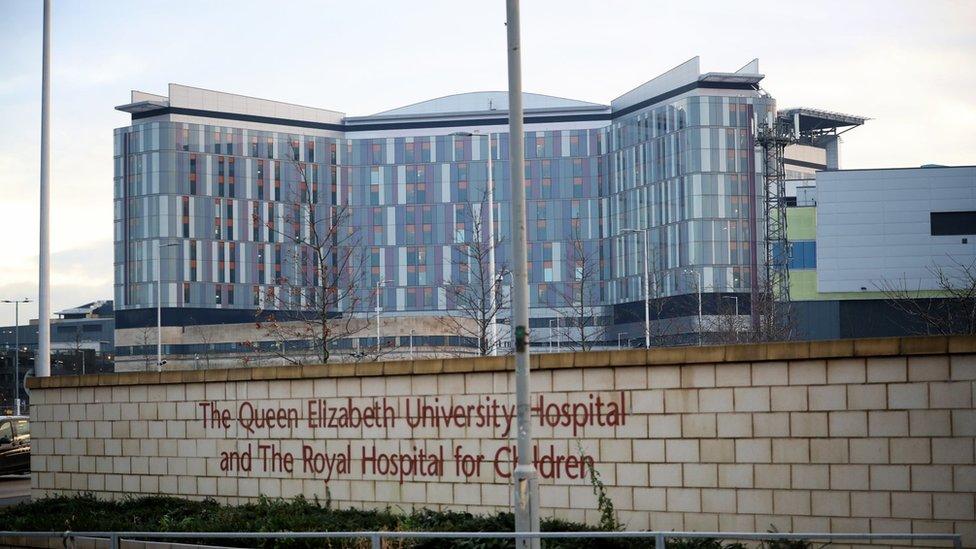NHS watchdog to review patient safety at Glasgow A&E department
- Published
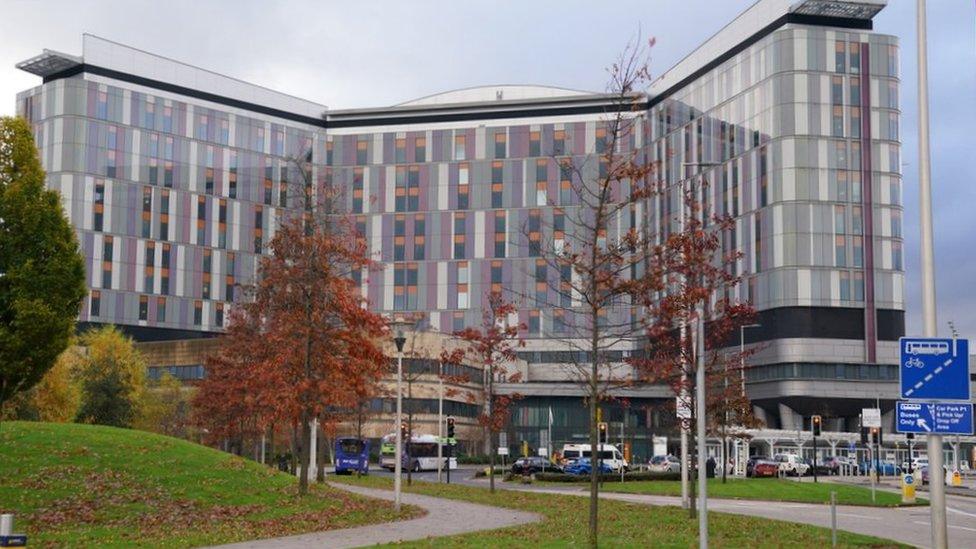
Glasgow's Queen Elizabeth University Hospital has one of the country's busiest emergency departments
Patient safety in the Accident & Emergency unit at the Queen Elizabeth University Hospital in Glasgow will be reviewed by an NHS watchdog.
Healthcare Improvement Scotland (HIS) was first contacted by 29 A&E doctors in May 2023 warning that safety was being "seriously compromised".
HIS last month apologised for not fully investigating their concerns.
The review will consider leadership and operational issues and how they may have impacted on safety and care.
In the letter to HIS, the 29 consultants highlighted treatment delays, "inadequate" staffing levels and patients being left unassessed in unsuitable waiting areas.
They claimed this resulted in "preventable patient harm and sub-standard levels of basic patient care".
The doctors also said critical events had occurred including potentially avoidable deaths.
The consultants said repeated efforts to raise the issues with health board bosses "failed to elicit any significant response".
They offered 18 months of evidence of overcrowding and staff shortages to back up their claims.
However, HIS did not ask for this evidence and did not meet any of the 29 doctors - which is almost every consultant in the hospital's emergency department.
Instead, it carried out an investigation where it only spoke to senior executives at NHS Greater Glasgow and Clyde before closing down the inquiry.
Last month, HIS issued a "sincere and unreserved apology" to the consultants and upheld two complaints about the way it handled their whistleblowing letter about patient safety.
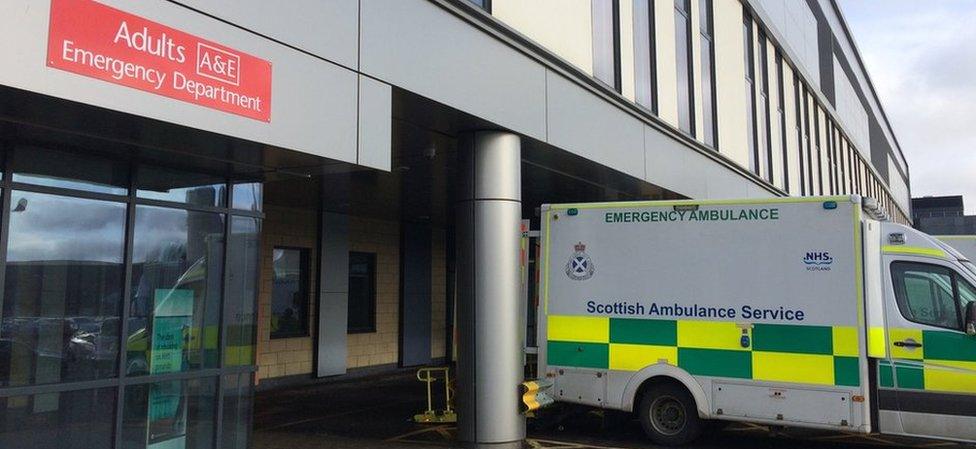
HIS said the focus of its review would be to identify the key issues and areas for improvement which are evidence-based, sustainable and practical.
Chief executive Robbie Pearson said: "The emergency department consultants at Queen Elizabeth University Hospital (QEUH) have expressed a range of concerns which they believe compromise their ability to provide safe, effective, and person-centred care.
"This review will assess these issues to ensure a comprehensive and balanced assessment from all perspectives.
"The review will ensure the involvement of as wide a range of staff as possible - including the emergency department consultants - in order to build a complete picture of the issues facing the service."
Jane Grant, chief executive of NHS Greater Glasgow and Clyde (NHSGGC), said: "We will fully support the review by Healthcare Improvement Scotland and will continue to work with them and our staff to improve the patient experience at the QEUH."
The review will be carried out by a senior level team.
Further details on its scope and timelines will be published at a later date.


Emergency medicine doctors I've been speaking to across Scotland say they have been trying to raise the alarm for three years now. They say it has become an all too regular occurrence for patients to wait in unsuitable conditions, like on trollies or in chairs in corridors, because there is not enough space.
Before 2019 it was rare for patients to spend long periods in A&E, but data shows that last week alone, more than 6,000 patients spent 12 hours or more in an emergency department. That puts them at risk.
Many need to be admitted for further care but there is no room. Hospitals struggle to get people home when they are ready to be discharged for a variety of reasons.
These include problems with getting GP appointments because there are not enough family doctors, long wait times for routine treatment sometimes resulting in people becoming sicker and needing hospital care, and a shortage of social care.
All of this has a knock on effect, causing delays at A&E.
The doctors I speak to will be disappointed that the government is not willing to commit to a national review of emergency departments at this time - especially as Audit Scotland, the spending watchdog, said the government needs to set out an overall vision for health and social care as health boards cannot fix all the problems on their own.
The trouble is there are no easy answers. The review of the Queen Elizabeth's emergency department will be one of the most comprehensive carried out by Healthcare Improvement Scotland.
The findings of that could yet prompt a wider investigation into patient safety in our A&Es.

There have been longstanding concerns about patient safety standards in the emergency department at the QEUH.
It is one of the country's busiest A&Es and has regularly failed to meet Scottish government targets on treating patients within four hours.
In 2022, BBC Scotland revealed how A&E doctors had urged NHS Greater Glasgow and Clyde to declare a major incident at the hospital amidst fears the department would be overwhelmed.
In August last year, HIS wrote to NHSGGC's chief executive to tell the board it was closing its investigation into the consultants' complaint as it was satisfied there was "awareness and oversight of the issues and of the performance of the emergency department".
The letter listed what the board told HIS it was doing to address the problems but also pointed out a "great deal remains to be done in order to improve communication and relationships" with staff.
It also revealed that some of the internal reviews required to be carried out after significant adverse events in the hospital were "significantly overdue".
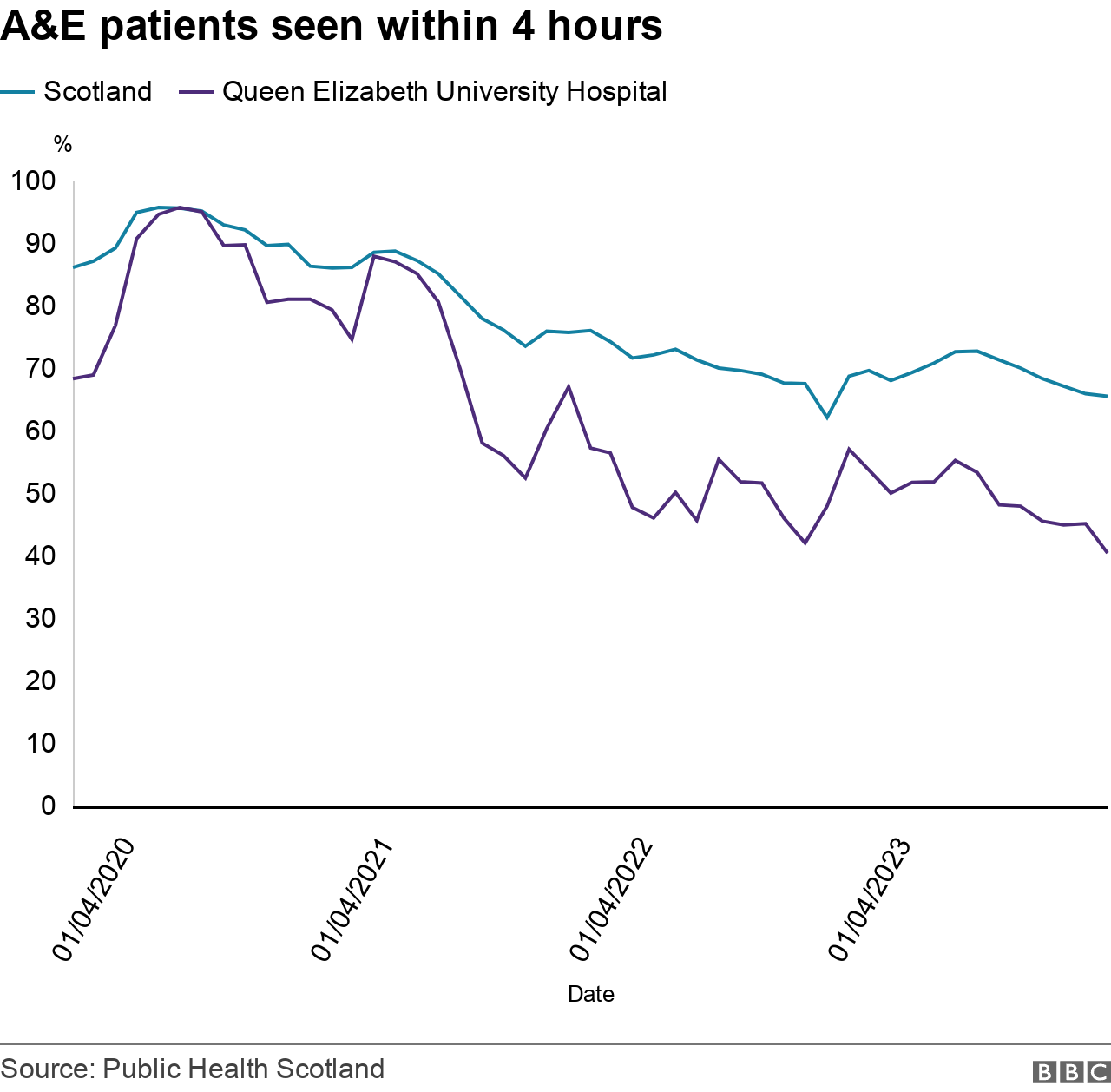
One consultant who signed the consultants' letter previously told BBC Scotland News: "We'd exhausted all our options and thought HIS was a credible organisation.
"We offered to share evidence of patient harm. We were shocked that they ignored this and didn't engage with us as the consultant group raising concerns."
Another consultant added they were "shocked at their negligence".
In January this year, HIS upheld a complaint that it did not provide any of the 29 doctors with the opportunity to discuss their concerns directly with its officials.
A second complaint, that there was no opportunity to provide evidence to substantiate the consultants' claims, was also upheld.
Last week, BBC Scotland News reported how 27 A&E consultants at the Royal Infirmary of Edinburgh (RIE) had written a letter of no confidence in the NHS Lothian executive board last year.
The doctors claimed they "currently cannot deliver safe, effective timely care for our patients".
- Published28 March 2024
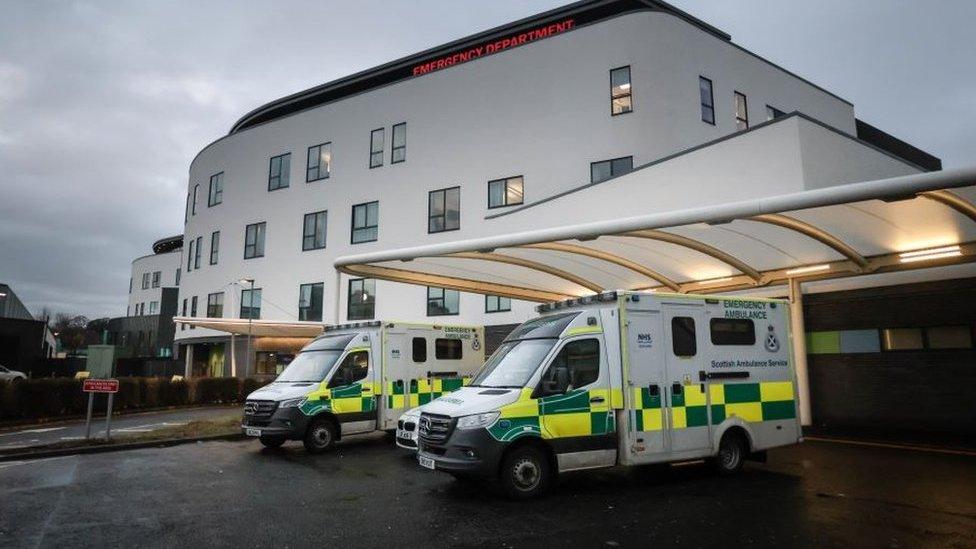
- Published25 March 2024
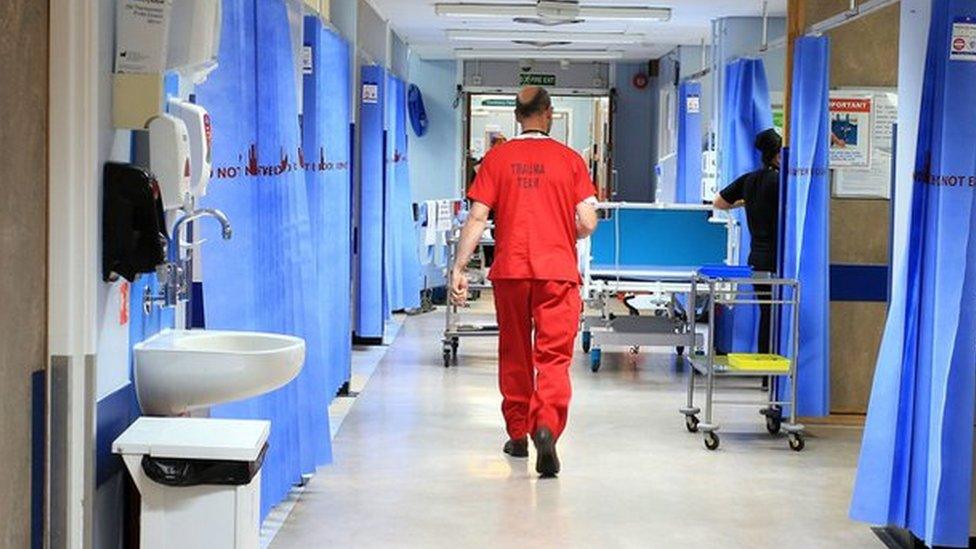
- Published23 August 2023
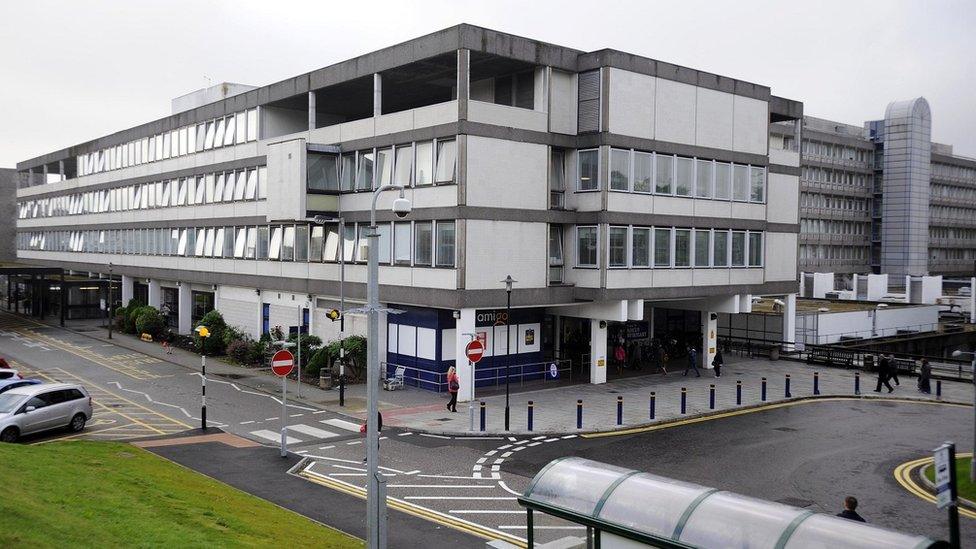
- Published18 May 2023
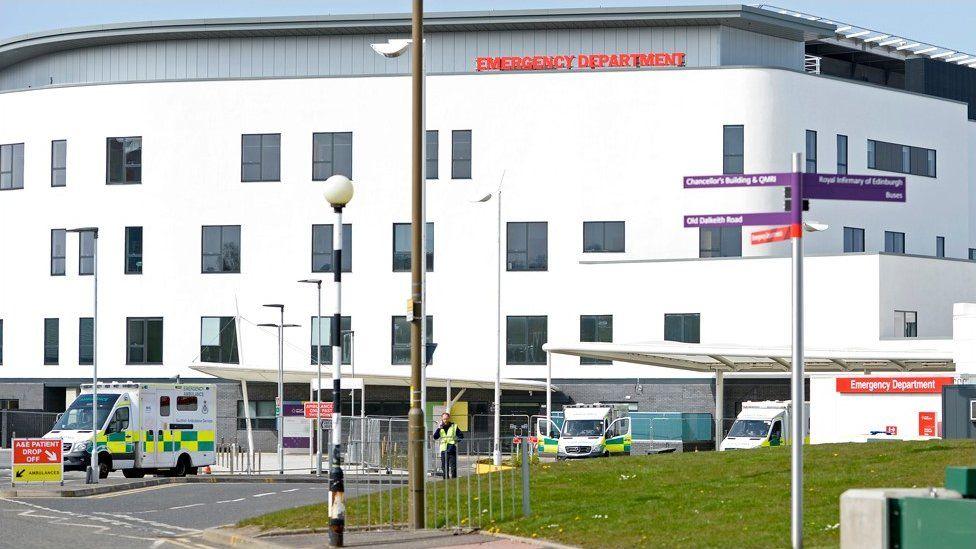
- Published30 December 2022
